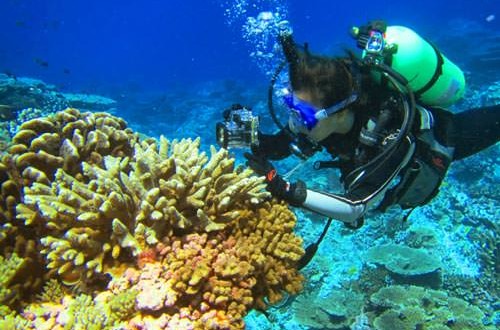Researchers and scientists from San Diego State University (SDSU) and other higher learning institutions from around the world have succeeded in becoming the first to sequence DNA at sea.
The scientists sequenced 26 bacterial genomes during a three-week expedition last year to the Line Islands, which are south of Hawaii near the equator. They also sequenced two metagenomes, which take into account all the DNA present in a given sample, according to the article published online today in the journal Peerj.
Biologists and computer scientists at SDSU have been traveling to the region for the last decade, collecting and analyzing the coral habitat to better understand what organisms live there, how they compete for resources, and what effects their presence has on the reef’s ecosystem.
SDSU computer scientist Rob Edwards was always bothered that they had to wait until they were back home, on the other side of the world, before they could look at their data and develop new hypotheses.
“If only we had had that data out in the field, we could have asked those questions there and then,” Edwards said. “People are a little bit hesitant to take a half-million-dollar piece of equipment into the middle of the Pacific if you’re not sure it’s going to be coming back.”
San Diego-based Life Technologies allowed the group to take a DNA sequencer, which was placed in a laundry room on the lowest level of the MY Hanse Explorer, because that’s where the deck rolled the least.
Doctoral student Yan Wei Lim needed five hours to calibrate the sequencer because of the seagoing conditions. The process usually takes 15 minutes in a laboratory.
Edwards said the group already plans to go back with a DNA sequencer again, and will be better prepared.
SDSU biologist Forest Rohwer and postdoctoral scholar Andreas Haas also took part in the expedition.
Agencies/Canadajournal
 Canada Journal – News of the World Articles and videos to bring you the biggest Canadian news stories from across the country every day
Canada Journal – News of the World Articles and videos to bring you the biggest Canadian news stories from across the country every day



